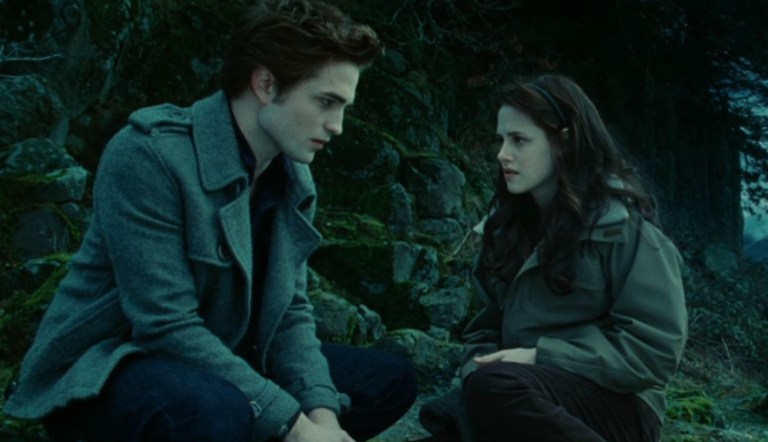
Why Is The Best Moment Of ‘Black Mirror’ Season 7 In Its Worst Episode?
The new season of Black Mirror is now available for the world to judge, and my, how it has judged.
Rankings of the season are a dime a dozen now, and each reviewer has had a distinctly unique experience. Every episode of the season has appeared at the top or bottom of someone’s list depending on the day. On one hand, this is a beautiful indicator of human nature; we are all experiencing this art individually and connecting with it in different ways. On the other hand, this is exposing the subjectivity and thus inherent futility of ranking, causing me great pain as a writer who loves ranking things online. Now, I will not be ranking anything today. I will simply state that “Hotel Reverie” is objectively the season’s worst episode according to science. Source pending.
Maybe you disagree. That’s fine. But hear me out. Also, the episode still contains the season’s best moment!
“Hotel Reverie” starts out with a strong concept. The consciousness of an A-Lister (Issa Rae) is dropped into an immersive recreation of a Casablanca-esque movie in which all of the AI-generated characters around her think that they’re real. Their entire purpose in life is to live out the plot points of the original movie. Rae’s character Brandy, who is replacing the male protagonist, simply needs to repeat all of his lines from the original movie in one take, maintaining the movie’s internal reality. It’s a plausible sci-fi idea brimming with promise. Of course a movie studio would recreate an entire set and cast using AI instead of just paying hundreds of extras a fair rate. As for why any audience would watch such a movie is not the type of question this episode seeks to answer.
Since this is a Black Mirror episode, things go immediately awry. Unlike her character, Brandy hilariously cannot play piano, causing an early scene to go off the rails. Soon after, Brandy’s version of the movie diverges even further from the original, reducing the chances that her body in the real world won’t become a vegetable.
Here’s where the problems begin, if you ignore the episode’s plot holes. (Like, why did Brandy never wonder why she was only scheduled for one day of filming? And if the studio had the ability to perform reshoots within the AI world, why didn’t they give themselves more time on set? And why didn’t … OK, sorry, it’s just really hard to ignore the plot holes!) If we ignore the plot holes, then it’s around this point in the episode when Brandy starts to fall for her on-screen love interest, Clara (Emma Corrin), for real. That’s where “Hotel Reverie” loses me. Despite how much I love Issa Rae, she’s just not giving here. She has excellent comedic timing and plays bashful so well, but cannot sell her growing love for Clara. There’s no passion in her eyes and her romantic line readings land with thuds. This effect, combined with the mental gymnastics required to embrace “Hotel Reverie,” snuff the episode’s romantic spell for me. When the romantic climax rolls around and I’m supposed to cry, I feel dead inside. This is from someone who watches “San Junipero” at least once a year.
And yet … and yet! “Hotel Reverie” still makes my eyes well up, but not where you’d expect. There’s a moment when Clara’s character — now aware that she’s a piece of technology — steps outside the artificial boundaries of her movie. Within this void, she accesses all of the memories of the actress who played her. She learns that in the “real world” she was a closeted queer person who took her own life after enduring homophobic speculation about her personal relationships. The music here, Clara’s tragic backstory, and the stark beauty of this pitch black world are all unforgettable. For any queer people watching, it’s also possibly a metaphor for something even more powerful.
At some point in every queer person’s life, they become conscious that they’re queer and that this has happened to them without their consent. In that moment, depending on where they live or their socioeconomic status, they might also immediately understand the implications of that queerness — the bigotry, bullying, and backlash. The constant struggle. They will, of course, deal with these implications however they see fit. But they must first accept them. In “Hotel Reverie,” Clara is watching her entire life as a queer person flash before her eyes and realizing that she has no power to change it. She simply has to accept it, warts and all. That’s bleak. That’s also a queer reality. By exploring the implications of self-aware AI to create a poignant parallel with real-world human storylines, “Hotel Reverie” has managed to represent Black Mirror at its finest.
I still can’t get over the plot holes, though.











